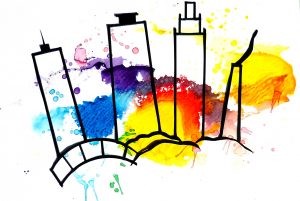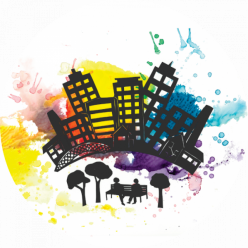
“Transforming Stories actually helped us to tell exactly what we want to say… instead of saying what they want to hear.”
— Jones
Editor’s Note: In this blog,"Jones" discusses the performance-as-research process from her perspective as a community performer on Transforming Stories.
When we were planning this whole skit, we didn’t know where it was going to go. We were just following the leadership of these wonderful people. We had three chairs set out. And we pretended that people were sitting there like you’re sitting in front of me right now. The chairs represented different agencies. It could be any agency; it could be your medical doctor, pharmacist, and specialist. Someone who works in social assistance, a case manager, a housing manager, someone from the food bank. Anybody you want to have a conversation with.
In the whole process, we spoke to the empty chairs, making statements that were expected of us to say normally to these agencies and service providers. What we would like to say to these people if they were in front of you? All of us, in real life, we all have the polite way of saying things, you know?
There is this thing in the community, where you feel that you need to say this, this, and this to get that.
So, you say this, this, and this.
But… what you REALLY want to say is not coming out.
The directors, they wanted us to say what we REALLY wanted to say.
Instead of what we SHOULD say.
You know what I mean? And so we went for it. Oh my God! I think that was the best breakthrough, I mean for me personally. And I think for the people who we were working with. Because we actually went ALL OUT!
This never made the skit, but I have to share this example. Going to your doctor’s office, your doctor will say to you, “How are you? What can I do for you?” And you say, “Oh, I have a headache.” And the doctor will say, “Fine. Take Tylenol”. Or send you to another institution. What you really want to say is, “Doctor, not only is my head hurting. My neck is hurting. I’m grinding my teeth. My back is hurting me, and I can’t sleep at night.” But for various reason the doctor doesn’t want to hear all that, you know?
Transforming Stories actually helped us to tell exactly what we want to say, instead of saying what they want to hear or what is expected of us to say. Which is the secret to this whole project. It evolved that way. Plus we have this wonderful great team who knew how to channel us in the right spot.
The organizers [of Transforming Stories], they are amazing human beings. They are amazing. They get it. They understand and appreciate what we have gone through. And they appreciate that we are sharing this. Because it takes a lot of courage to be vulnerable. To talk about your dirty laundry. And this is not just your dirty laundry, this is the dirty laundry of all of us, in the community. It is all of our problems. And to have them acknowledge that even though they may not have had some of our collective experience, or even exact experience, or even some of what we have gone through. They were wowed!
And they protected our integrity. They protected our mental state because when you are talking about stuff like this, it is very challenging. They made sure that we were taken care of emotional-wise. And they made sure that we felt that what we were saying was worthwhile. I think it’s because of that, I and these wonderful group of women performed the way we did and why were we were able to do this. Because we couldn’t do it ourselves. It is like you have a car with all its bells and whistles, and if there’s no oil in there or if you don’t fill the tank with gas, you ain’t going anywhere, right? So, the organizers were the oil and the gas for us and helped us perform this powerful, ground-breaking awesomeness!

